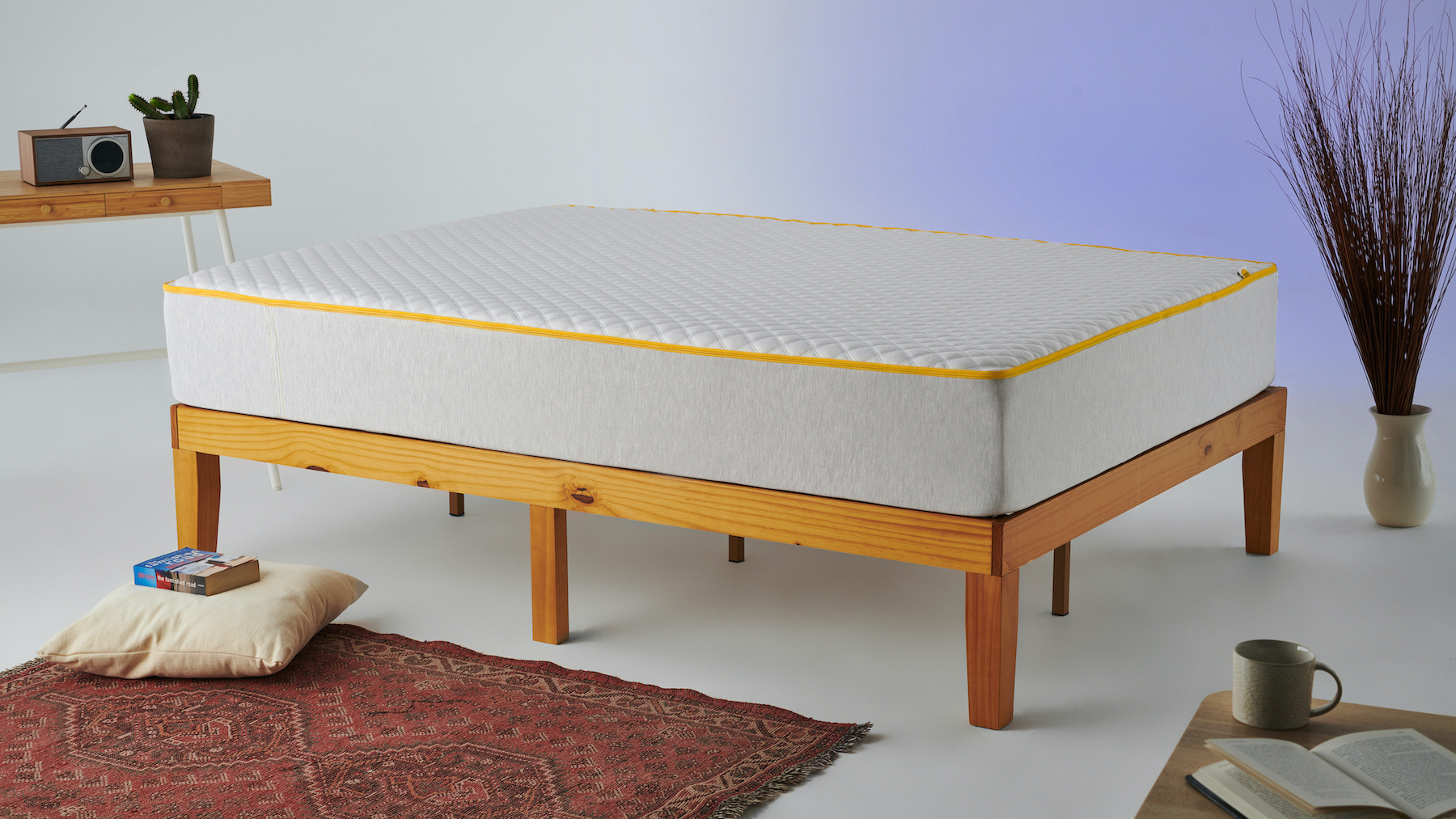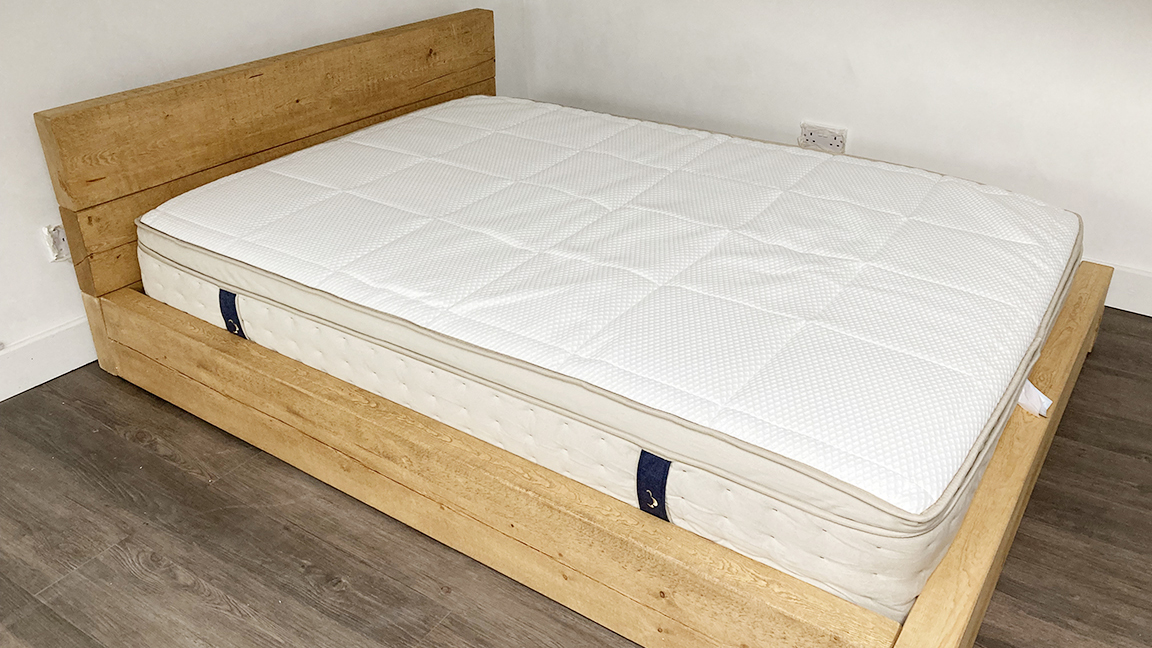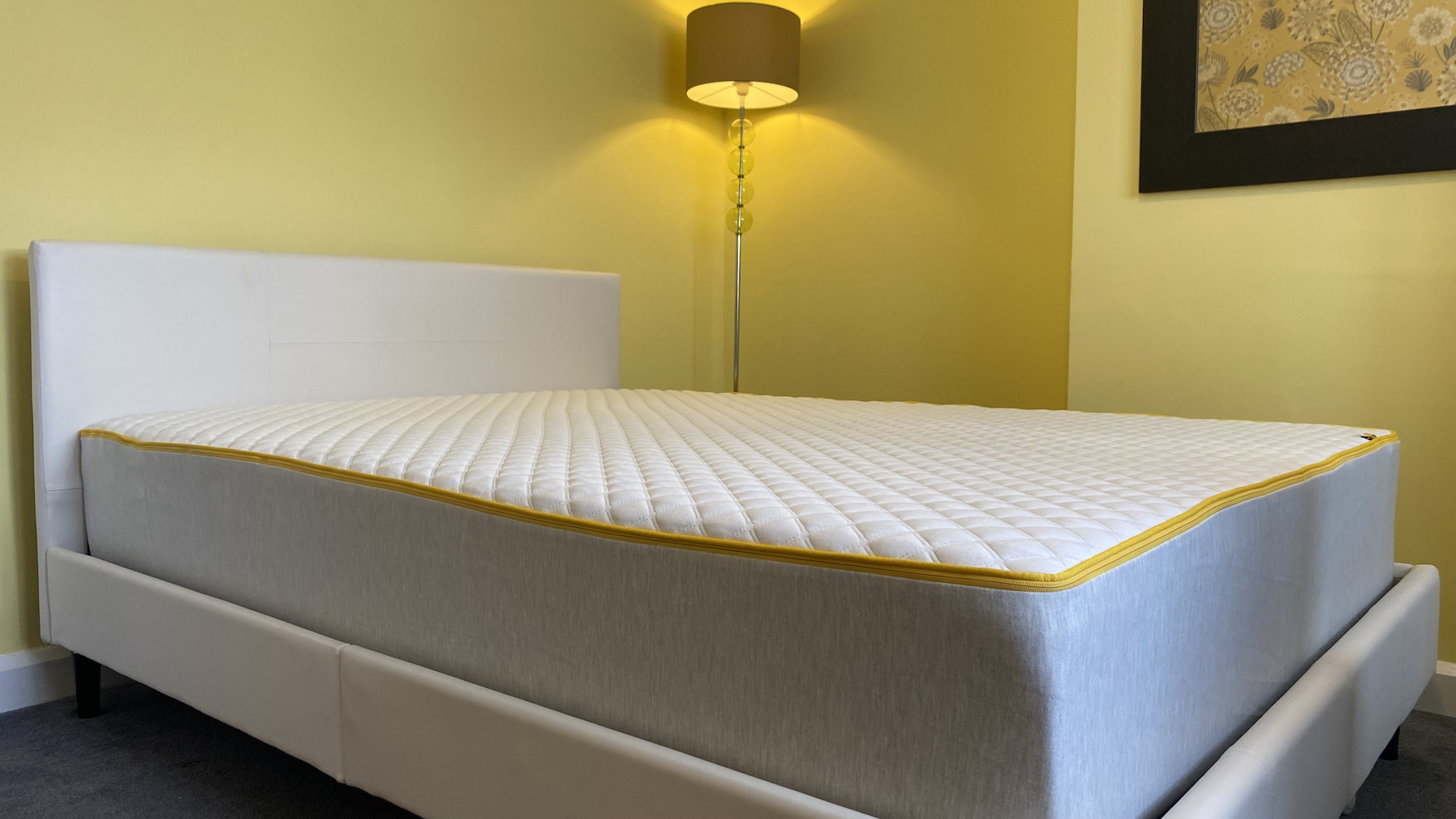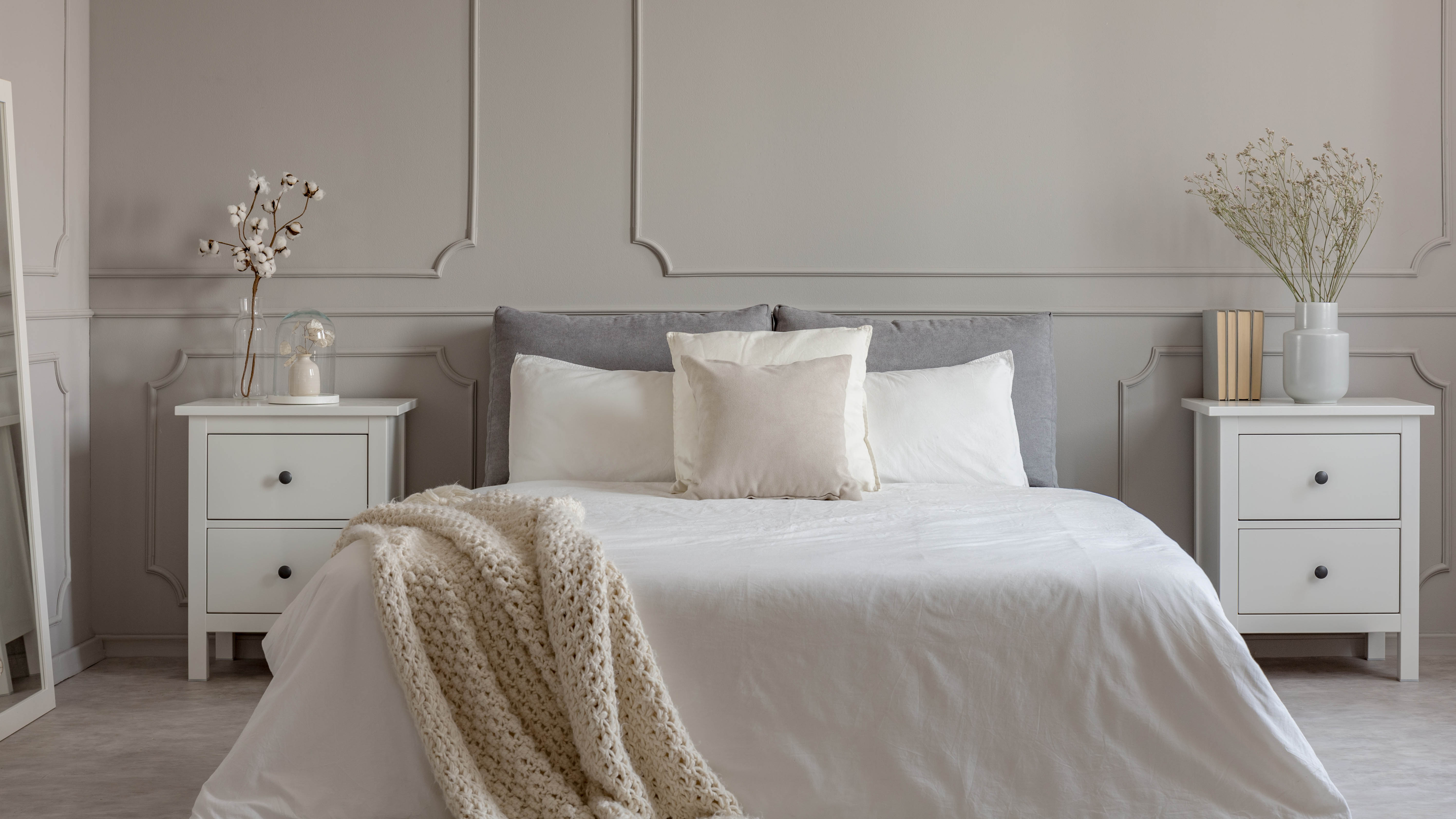What is a hybrid mattress and is it the best choice for your sleep?
Switching to a hybrid mattress? Here's what you need to know

Hybrid mattresses are often touted as the future of beds. That might sound dramatic for a slab of memory foam or latex plus a load of springs or coils, but they’re incredibly innovative compared to mattresses of yesteryear.
Our best mattress guide includes many hybrid models, and all of them feel cooler, bouncier and slightly firmer than the memory foam beds in the guide. You can thank all those coils for that.
Most hybrid mattresses come in a medium-firm feel (the sweet spot for balancing comfort versus support), but a few are designed to be firmer. This is often to accommodate heavier bodies, plus stomach and back sleepers who need to sleep on top of their mattress, rather than sinking in, to prevent their spines from dipping. Here’s what you need to know…
- What is a mattress in a box? Key info explained
- What is a hybrid mattress and is it the right choice for you?
- What is a memory foam mattress and should you buy one?
What is a hybrid mattress?
A hybrid mattress is one made with multiple layers of various materials such as memory foam, latex, gel foam and either springs or coils. They’re ideal for getting the feel of a more traditional mattress coupled with the deeper pressure relief of memory foam and its equivalents (such as NASA-developed Tempur).
Their main benefits are:
- Great pressure relief
- Enhanced breathability
- A bouncier, more responsive feel
- Proper spinal alignment

How much do hybrid mattresses cost?
A hybrid mattress is normally more expensive than a memory foam mattress and the majority of traditional innerspring models. That’s because they use more materials, and their components are usually of a premium grade. That said, they don't cost as much as the best organic mattresses with fully certified organic materials. (Learn more in our feature on what is an organic mattress.)
You can buy hybrids in the UK and the US, with prices varying wildly depending on the manufacturer or retailer you shop with. In the US, you can buy a decent hybrid for less than $180, and brands such as Zinus, Linenspa, Lucid and Brooklyn Bedding are the ones to turn to if you’re looking for the best cheap mattress made from foam and coils. At the other end of the scale, you’ll pay thousands for a premium hybrid.
In the UK, hybrids tend to cost more because they’re still relatively new. They usually start from around £400, although this is hugely influenced by the quality of mattress sales running at any one time. Simba Sleep, Emma, DreamCloud, Nectar Sleep and Eve are all leading hybrid manufacturers.
What are hybrid mattresses made of?
The most common materials found in a hybrid mattress are latex or foam, plus either coils or springs. While there are several different types of hybrid on the market, most follow a fairly similar construction. The common components include:
A breathable cover - to regulate temperature and dissipate heat.
A comfort layer - you rest on this layer and it’s usually made of contouring memory foam or latex, or cooling gel-infused foam.
A support core - the tallest part of a hybrid mattress and the place where all those individually wrapped coils or springs live.
Edge support - so that you can use every inch of the mattress for sleeping and sitting; also makes getting in and out of bed easier.
A base layer - you’ll find this at the very bottom and its job is to keep the entire mattress stable as you sleep on it.
Depending on the manufacturer you shop with, you’ll also come across less common components such as a Euro or pillow top for instant sink-in softness, or advanced cooling technologies. That’s why the majority of beds in our best cooling mattress guide are hybrid models.

Are hybrid mattresses comfortable to sleep on?
This depends on the type of mattress you normally enjoy sleeping on, plus your body weight and the position you fall asleep in. Hybrid mattresses suit most people and are noticeably cooler and firmer than all-foam beds.
We know this because we’ve tested a number of hybrids – read our Eve Premium mattress review or DreamCloud mattress review for just two examples – and the difference is noticeable. One of the reasons for this enhanced breathability is how air flows more freely through and around coils and springs.
In terms of body comfort, hybrids are normally firmer than all-foam beds, yet they couple this with more bounce and responsiveness. The use of foam or latex with coils keeps your spine properly aligned during sleep while relieving pressure on your back, hips and other impact points.
How long do hybrid mattresses last?
Because they’re the most expensive type of bed outside of a proper organic mattress or a tech-laden smart bed, people often wonder how long a hybrid mattress lasts. In other words, are they a good investment or not.
On average, a hybrid mattress will last around seven to ten years but this depends on specific factors:
- How you care for it
- The combined body weight sleeping on the hybrid
- How much use it gets
Take a look at our best mattresses in a box guide and you’ll see that most hybrids come with a 10-year warranty. A few, including the Saatva Classic (read our Saatva Classic mattress review for more) and the DreamCloud Luxury Hybrid come with a lifetime mattress warranty. Those are rare though - only a handful of hybrids have such long-term coverage.
Do hybrids need a box spring?
The beauty of a hybrid is that they don’t need a box spring and can be placed on a wide variety of bed bases and frames, including slatted frames and platforms.

That said, if you like a box spring and need the extra height, then most hybrids are compatible with box springs. We’d recommend checking the height of the hybrid first as some, such as the DreamCloud, are very tall anyway and a box spring would make the entire bed quite steep to get onto and out of.
Who should buy a hybrid mattress?
A hybrid mattress would be a good choice for many different sleepers, but particularly so if the following resonates with you:
- You want the contouring feel of foam and the bounce of springs
- You struggle with restlessness and switch between sleep positions
- You sleep hot and need a breathable bed
- You are a stomach or back sleeper
- You have a heavier body that needs more support
- You enjoy a bouncier bed
- You need extra edge support to get out of bed easier
This isn’t an exhaustive list, but it should give you an idea of who would find a hybrid mattress the most comfortable.
Who shouldn’t buy a hybrid mattress?
While hybrids are designed to suit most body types and sleep positions, from our testing experience they don’t suit everybody. A hybrid might not suit you if:
- You love softer to medium-feel beds
- You have a lighter weight body that needs more cushioning
- You share with a restless sleeper and need higher motion isolation
- You sleep cold and want a cozier, snugger mattress
- You love the feel of being hugged by your bed
A hybrid mattress can be a great investment in your sleep as they offer higher levels of responsive pressure relief. This means they are capable of constantly adapting to your changing sleep position so you'll feel less discomfort overall. They're also cooler, making them good for people prone to overheating.
For this year's top options, take a look at our expert guide to this year's best mattresses for all budgets. If you have much less to spend yet need more in-bed comfort, a good mattress topper can help extend the life of your current bed by a year or two.
Sign up to get the BEST of Tom's Guide direct to your inbox.
Get instant access to breaking news, the hottest reviews, great deals and helpful tips.

Claire is a fully qualified journalist and Certified Sleep Science Coach with over 16 years’ product review experience. Claire is responsible for all mattress and sleep content published on Tom’s Guide, including our Best Mattress of 2025 buying guide. She is our expert on Saatva, DreamCloud, Nectar and Tempur-Pedic mattresses, and is also our in-house hybrid mattress specialist. Claire is certified to advise people on how to choose a mattress that best suits their sleep, body and budget, as well as helping them to create a nighttime routine and bedroom environment that promote good sleep. As Senior Sleep and Mattress Editor, Claire takes the lead on developing and overseeing rigorous testing procedures for our mattress reviews, both at home and in our fully equipped Sleep Lab. Claire leads a team of experienced sleep and mattress specialists who report on and test a wide range of mattress and sleep products, and she also writes about all things related to sleep, and has interviewed a wealth of experts including mattress designers and buyers, neuroscientists, and doctors of sleep medicine.
